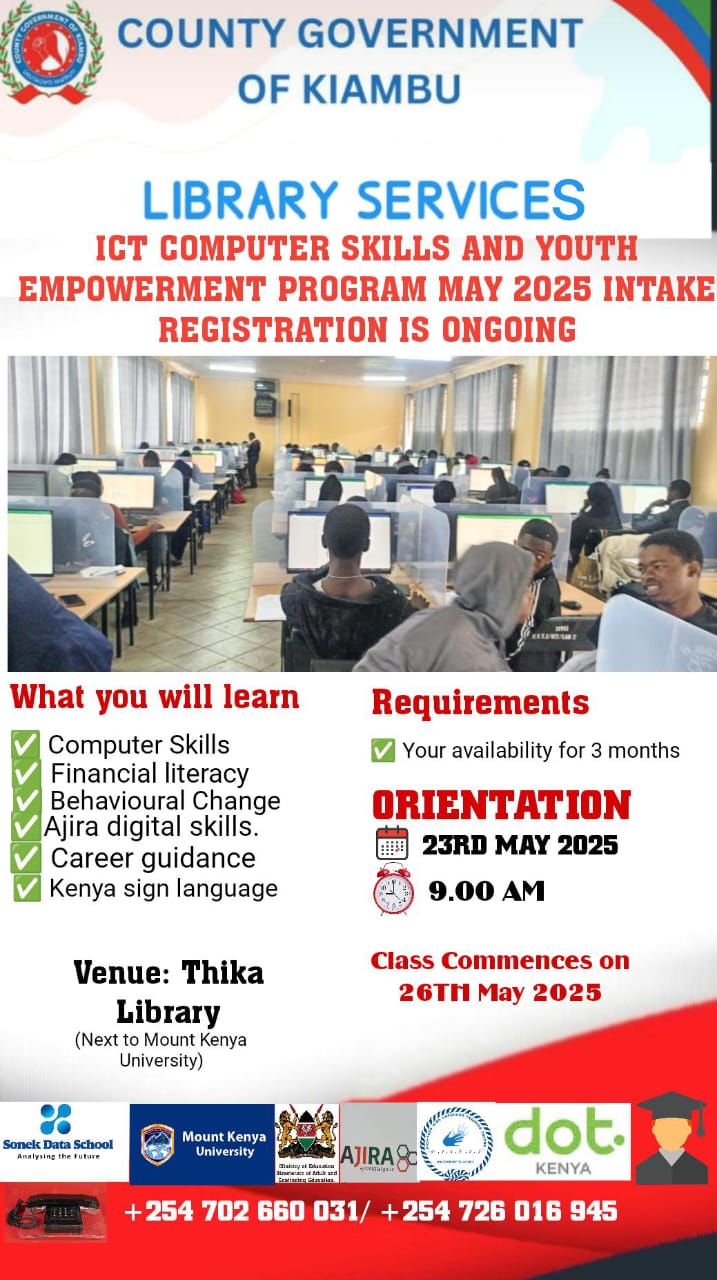KIAMBU TO ESTABLISH NEW LAND AND BUILDING DIGITAL APPROVAL SYSTEM
H.E Governor Kimani Wamatangi has initiated the process of establishing a new land and building digital application system, in a bid to expedite the process of the applications in the lands and housing sector. This was after the governor terminated the use of E-dams following a scrutiny of the system that revealed grave inefficiency which he said was deliberate to aid extortion.
The system, he said was being manipulated leading to constant downtime and delays. “We have had cases of developers who applied for approvals and building plans over three years ago, but they have not been successful. This is because the system was designed to aid extortion through deliberate delays that have been frustrating developers. Some unscrupulous officials would, open the system for applications but would occasion it’s downtime in order to frustrate the applicants. They would later follow them up with a promise of expediting the approvals if only they paid bribes. Those who declined had their applications delayed or rejected”. That is why we are assembling a new and efficient system that will restore sanity in the applications and approvals.
The issues raised by several contractors is a signal that the E-Dams system is obsolete as it has been unable to handle large volumes of data with contractors having to wait for almost two years to get building approvals. This pushed several rouge contractors to start construction without inspection leading to the collapse of several buildings and the loss of lives.
In November last year H.E Dr. Kimani Wamatangi had to intervene in an evacuation process of a building that had cracks in Ruiru. The building would later collapse overnight and thankfully due to the swift reaction by the County Government no lives were lost.
Governor Kimani Wamatangi’s administration remains committed to improving efficiency, increasing delivery timelines and enhance development through ICT integration in all the departments. The new digital platform will seek to automate the approval process and remove the manual handling of documents. The integrated system will remove silos and enable a more coordinated agile service delivery to the citizens.
To enhance service delivery in the Department of Lands the County Government is set to benefit from the Digital Land Governance Programme (DLGP). The programme is being carried out by the Republic of Kenya in collaboration with the Food and Agricultural Organization of the United Nations (FAO) the European Union (EU), and the County Government. The programme aims to enhance efficient and effective land governance through the digitization of land records and processes, these will assist in recognition, protection and registration of communal tenure rights.
Through this programme, Kiambu County will benefit through capacity development for County Staffs on GIS use and application, Developing and linking the County land Information Management System to GIS, support refurbishment of land registries and equipping of GIS lab to cater for county wide interests and conduct land clinics community sensitizations, documentation and processing succession claims.
The County Government will conduct survey works in 100 market centers that are unplanned and un-surveyed, mapping of ecologically sensitive areas including wetland areas, Compile land records digitization and digitalization of analogue data at land registry and County Municipalities. Support formulation, review and implementation of County Special Plan, Sectorial Plans, County Development Plans and the Integrated Strategic Urban Development Plans (IUSDPs).
The County Government through the department of physical planning will develop a physical and land use policy that will work in tandem with a planning application, approval and enforcement system. The new integrated system will center on the needs of the employees and the general public and will seek to improve security of tenure and equitable access to land and natural resources for enhancement of livelihoods and sustainable socioeconomic development through equitable and secure access and management of land in line with Vision 2030.








